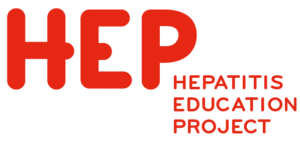Homelessness and Injection Drug Use: Expanding Access to Care

Grantee: Hepatitis Education Project (HEP)
Timeframe: July 2017 – June 2020 | Total Amount: $365,000
Year 1: July 2017 – June 2018. Amount: $115,000
Year 2: July 2018 – June 2019. Amount: $115,000
Year 3: July 2019 – June 2020. Amount: $135,000
This project aims to expand access to health care for people who inject drugs (PWID), with a focus on people experiencing homelessness and/or housing instability. Specifically, Hepatitis Education Project’s (HEP) objective is to improve health in these communities through the creation of a syringe services program (SSP), as well as increased access to hepatitis C (HCV) screening, linkage to care, and cure.
Through the funds provided by PHPDA, HEP will complete the following project activities:
- Establish a syringe services program,
- Fund 0.5 FTE syringe services coordinator, and
- Hire 1.0 FTE case manager, with 0.5 FTE dedicated to providing comprehensive case management services.
Support from PHPDA will enable HEP to establish an SSP at HEP’s office in the Central District. The SSP will be operated by HEP staff as well as peers and volunteers. To start, the SSP will operate one day per week for four hours. By the end of the project year, HEP will open a second exchange day, bringing total SSP services to eight hours per week. Syringe distribution will be needs-based, allowing participants to get up to 100 clean syringes per visit regardless of the number of syringes disposed. Needs-based distribution, as opposed to a one-for-one model, is recognized as a best practice for effective SSPs. In line with other King County SSPs, HEP will not collect identifying information to track the number of unique participants; rather, the number of services provided will be tracked per encounter.
To support SSP services, HEP is seeking funding for 0.5 FTE syringe services coordinator. In addition to managing other ancillary services, such as HIV testing and wound care, the coordinator will implement HCV testing. The model for HCV services will be based on programming at the People’s Harm Reduction Alliance (PHRA), a community-based SSP located in the University District. HEP partners with PHRA to provide free HCV rapid antibody tests and free on-site confirmatory blood tests to SSP participants.
Through the SSP, HEP will also distribute free naloxone to people who use drugs. Naloxone is a medication used to reverse an opioid overdose. However, price increases have made it difficult for many people to obtain this lifesaving medication. Public health experts have called for expanded naloxone distribution to opiate users at syringe exchanges, citing distribution through SSPs as an evidence-based approach to increasing naloxone access for opioid users.
Each SSP participant who receives a naloxone kit will participate in a short training on how to administer naloxone. The training covers signs of an opioid overdose; how to administer naloxone; and the importance of contacting emergency responders following an overdose. The information will also be repeated on a paper inserted included with the naloxone kit.
To more effectively address the needs of HEP’s clients, particularly those experiencing homelessness, HEP will hire a 1.0 FTE case manager with 0.5 FTE dedicated to providing comprehensive support services such as mental health, housing, financial and/or legal services, and medication-assisted treatment.
To create a program that is effective and efficient, HEP will rely heavily on the expertise of partners including the WA Department of Health, Public Health – Seattle & King County, and PHRA. These organizations have provided technical assistance as HEP develops organizational policies regarding the SSP. Additionally, HEP’s work would not be possible without the support of a dedicated team of volunteers. To thank our volunteers, we will host a monthly dinner at HEP’s office for SSP volunteers.
In addition to providing hepatitis services alongside the SSP, HEP will continue to provide hepatitis screening and vaccinations through our outreach program. The outreach program focuses on partnering local agencies that serve people experiencing homelessness and people who use drugs; existing outreach sites include treatment and recovery programs, needle exchange programs, drop-in centers, shelters, youth programs, and community health fairs. While a significant portion of our existing outreach sites are located in Seattle, we are expanding our services to include more outreach sites in South King County. Currently, HEP provides hepatitis C screenings at Evergreen Treatment Services, a methadone clinic in Renton, WA.
About our Grantee
Hepatitis Education Project (HEP)
The Hepatitis Education Project is committed to providing support, education, advocacy and direct services for people affected by hepatitis and to helping raise hepatitis awareness among patients, medical providers and the general public.